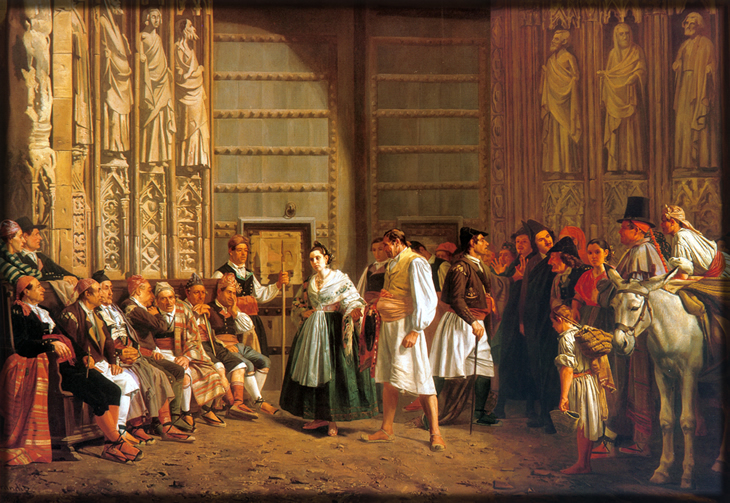El Tribunal de Las Aguas - Valencia's Water Tribunal
Law courts for water management in Spain which date from the 9th century
Every Thursday at noon, a group of men meet outside Valencia Cathedral, in a tradition which has been kept alive for centuries. The Tribunal de Las Aguas is one of two traditional law courts for water management on the Spanish Mediterranean coast which are recognised by UNESCO as an intangible cultural heritage of mankind. Both still function today and date back to the Al-Andalus period, from the 9th to the 13th Centuries.

https://tribunaldelasaguas.org/en/
Valencia’s Water Tribunal was formally established by King Jaime I to control the extensive Moorish irrigation system for distribution of water from the River Turia and was a continuance of the water courts which were put in place by the Moorish occupiers. It’s an elected body which is made of up eight farmers who are chosen every two years to represent each of the irrigated communities of the Valencia plains. The council meets outside the Cathedral’s Puerta de los Apóstoles, sitting in a formal grouping on 17th Century chairs, with all proceedings conducted in the Valencian language, although there are still some terms which are used from the Arabic language.
Dressed in their traditional black garb, the council quickly passes judgement on all matters relating to water management. The court is strictly oral and no written records are kept of its sessions.
In Murcia, the ‘Consejo de Buenos Hombres ‘ – ‘The Council of Wise Men’, also meets every Thursday. The time is 10am in a public session in the meeting chamber of Murcia City Hall, where the council has met since the start of the 19th Century. It is the only non-local corporation body which is permitted to use the auditorium.
The Council of Wise Men has jurisdiction over more than 23,000 members. The Council itself has seven members, five of whom represent the different irrigation areas of the Murcia ‘huerta’. These five positions are elected through a random draw and are rotated monthly between the Murcia farmers over the year, while the other two positions, the President and the Secretary, are permanent.
The Council’s decisions on the irrigation of water from the River Segura are taken through a majority of votes and are final.
The ancient Consejo de Buenos Hombres and the Tribunal de Las Aguas are both recognised as common law courts by the Spanish legal system, and their verdicts cannot be appealed before an ordinary court. In addition to the UNESCO recognition, each is protected in their region as a cultural heritage of Murcia and of Valencia.
